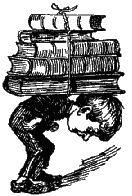Please see
Widener's Undergraduate Catalog for:
Standards for Academic Integrity,
Appeal Procedures for Student Academic Grievances, and Attendance
Policy.
Learning Accommodations
In accordance with the Americans with Disabilities Act, any student has the right to request reasonable accommodation of a disability. Accommodations can be requested through Academic Support Services, Disabilities Services (520 E. 14th St., 610-499-1266). Disabilities Services is the office that authorizes all accommodations on campus. Please note that you will need to present documentation of your disability to Disabilities Services. It is important to make this request as soon as possible so that we will have time to make any necessary arrangementsElectronic Devices in the Classroom
- NO CELL PHONES. Cell phones must be turned off for the duration of the lecture and lab.
- For Mini-Quiz 1 and Mini-Quiz 2 the only allowed open material is ONE PAGE (2 sides) of your own written or ptinted notes
- For the rest of the exams/quizzes all electronic devices except cell phones are permitted
Evaluation Criteria and Policies
-
Make-up quizzes, exams and lab assignments
- Any make-up for the
mini-quizzes, exams and lab assignments
must be arranged in
advance and done IN CLASS.
- Requirement for Laboratory
Assignments:
- You will need to start and
to finish your laboratory assignment in class during
your
regular lab period.
- Tentative Mini-Quizzes and Exams Schedule
- Starting second week of classes, the weekly mini-quizzes will
be given every Friday except the following dates when the Exams
are given:
- Exam 1: September 25
- Exam 2:October 16
- Exam 3: October 30
- Exam 4: November 20
- The duration of the mini-quizzes is 20-25 minutes (about half lecture period)
- The duration of the exam is 50 minutes (full lecture period)
ALL DATES ARE SUBJECT TO CHANGE. Students will be notified at least one week prior any change in exam/mini-quiz date. The changes will be posted on the course website and sent by e-mail. CHECK THE COURSE WEBSITE AND CAMPUS CRUISER E-MAIL REGULARLY.
- Starting second week of classes, the weekly mini-quizzes will
be given every Friday except the following dates when the Exams
are given:
The work handed in must be the student's own work.
Assignments which are written in groups are easily identifies and will receive grades of 0 for all participants.The weights of the homework, laboratory assignments, mini-quizzes and exams in the final grade are as follows:
Your laboratory grade will be calculated as below, and will then combined with your lecture grade.
Laboratory Grade
Lab Assignments 75% Lab Practice and Attendance 25% Total 100% Laboratory grade will contribute 45% of your final grade in the course
Final Grade
Laboratory Sessions 45% Exams 35% Mini-Quizzes 15% Homework and Attendance 5% Total 100% Final Grade Table
A: 95 - 100 A-: 90 - 94 B+: 87 - 89 B: 83 - 86 B-: 80 - 82 C+: 77 - 79 C: 73 - 76 C-: 70 - 72 D+: 67 - 69 D: 60 - 66 F: 59 - 0
All information in this document is subject to change throughout the semester. Check the course website and your Campus Cruiser e-mail regularly, any changes will be indicated on the course website and sent by e-mail. Students will be notified about any change at least one week in advance.
 Laboratory Assignments
Laboratory Assignments
